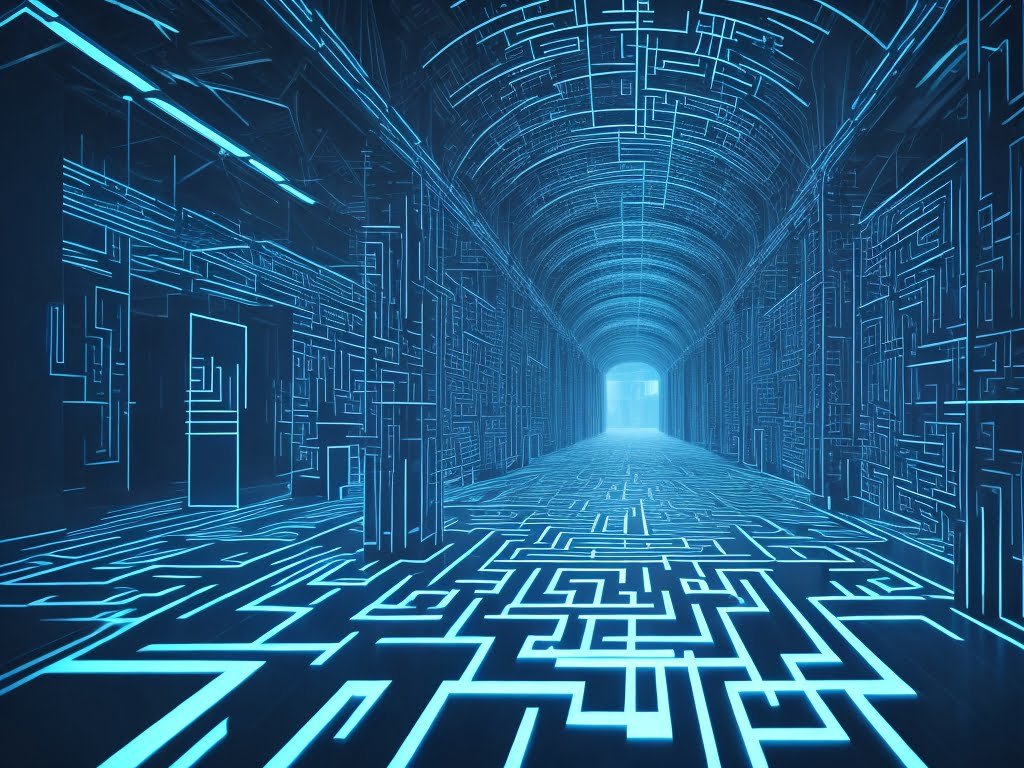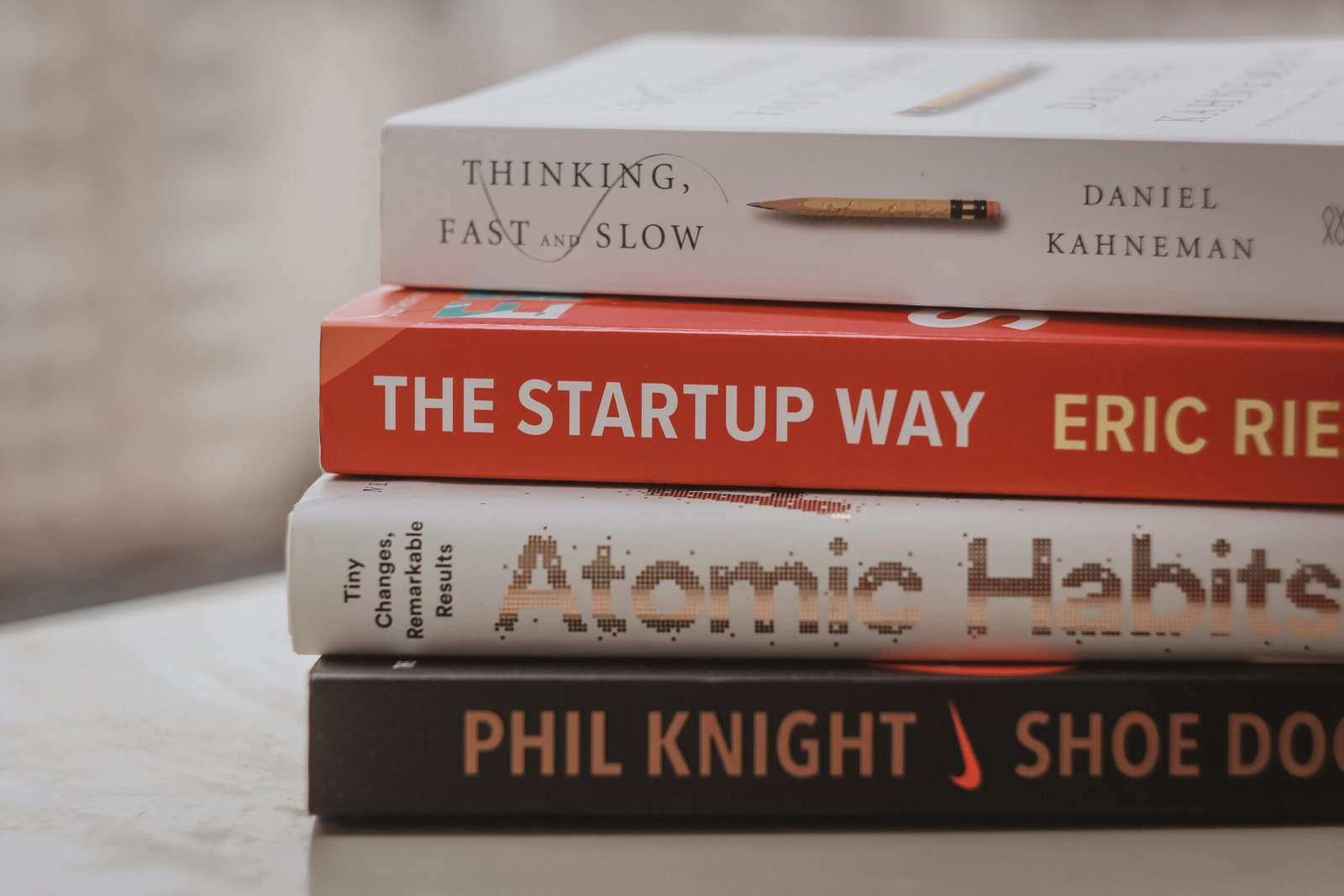7 Essential Mindsets: Unlocking the New Psychology of Success in 2023

In today’s rapidly changing world, the way we perceive success has undergone a significant transformation. It’s no longer just about innate talent or the circumstances we’re born into. Instead, it’s about the mindset we adopt and nurture throughout our lives.
Have you ever wondered why some individuals, despite facing numerous challenges, continue to shine in their endeavors, while others, even with evident talent, struggle to make a mark? The answer lies not just in their abilities but in their beliefs about those abilities. Research has consistently shown that our mindset plays a pivotal role in determining our success. Those who believe they can grow and improve with effort and experience are more likely to achieve their goals than those who view their abilities as fixed.
The concept of success psychology isn’t static; it has evolved over time. In the past, success might have been defined by societal standards or material achievements. But in the modern era, it’s more about personal growth, resilience, and the ability to adapt to an ever-changing environment. The year 2023 is no different. With the challenges and opportunities it presents, having the right mindset is more crucial than ever.
So, what is this ‘right mindset’? It’s a blend of belief in one’s ability to grow (often termed as the ‘growth mindset’) and the resilience to face setbacks. It’s about understanding that failures are not the end but rather stepping stones to success. And as we delve deeper into this topic, we’ll uncover the seven essential mindsets that can unlock the new psychology of success in 2023.
The Evolution of Success Psychology

Success, as a concept, has been a part of human history for as long as we can remember. But what defines success has seen a dramatic shift over the ages, influenced by societal norms, technological advancements, and our evolving understanding of human psychology.
A Glimpse into the Past
In ancient times, success was often equated with conquests, land ownership, and lineage. The more territories you conquered, the more successful you were deemed. As societies evolved, success began to be associated with wealth, power, and social status. The Renaissance period, for instance, saw success in terms of artistic and intellectual achievements. Fast forward to the Industrial Revolution, and success was often measured by one’s ability to capitalize on the booming economy.
The Modern Era and Its Nuances
Come the 21st century, and the definition of success has become more multifaceted than ever. With the rise of technology, especially the internet, success stories aren’t just about billionaires anymore. It’s about influencers, tech-startups, social activists, and more. The digital age has democratized success, making it accessible and possible for anyone with an idea and the grit to pursue it.
But it’s not just about achieving fame or amassing wealth anymore. With societal shifts, there’s a growing emphasis on personal fulfillment, mental well-being, and the impact one leaves on the world. The narrative is changing from ‘having it all’ to ‘making it meaningful’.
Societal and Technological Influences
Society and technology have always played a pivotal role in shaping our understanding of success. For instance, the advent of social media has both broadened our horizons and posed new challenges. On one hand, it’s easier than ever to share one’s achievements and gain recognition. On the other, the constant barrage of success stories can lead to comparison, fostering feelings of inadequacy.
Moreover, as technology continues to advance at an unprecedented rate, it’s reshaping industries, creating new job roles, and rendering others obsolete. This dynamic landscape means that adaptability, continuous learning, and resilience are more integral to success than ever before.
The psychology of success is an ever-evolving field, influenced by myriad factors. While the core essence remains-striving for a goal and achieving it-the parameters and benchmarks have seen a sea change. As we navigate the complexities of the modern world, it’s essential to remember that success is as much about the journey as it is about the destination.
Why Mindset Matters in 2023

The dawn of 2023 brings with it a world that’s ever-evolving, presenting both unique challenges and unparalleled opportunities. In such a dynamic landscape, one might wonder, what’s the key to navigating these tumultuous times successfully? The answer, quite simply, lies in our mindset.
The Challenges and Opportunities of 2023
As we stand on the cusp of 2023, we’re witnessing a world that’s more interconnected than ever, thanks to the rapid advancements in technology. This interconnectedness, while offering boundless opportunities for collaboration and innovation, also presents challenges. The pace of change is relentless, and the sheer volume of information can be overwhelming. Moreover, the global nature of our world means that events in one corner can have ripple effects across continents.
Yet, for those with the right mindset, 2023 is a treasure trove of opportunities. The digital age offers platforms for voices that were previously unheard. Innovations in fields like AI, biotechnology, and renewable energy are opening doors to solutions for some of our most pressing global challenges.
Adaptability and Resilience: The Cornerstones of Success
In a world where change is the only constant, adaptability becomes paramount. It’s not just about reacting to change, but proactively embracing it, learning from it, and using it as a stepping stone to new possibilities. And this is where the right mindset plays a pivotal role. An adaptable mindset sees change not as a threat, but as an opportunity for growth and learning.
Hand in hand with adaptability comes resilience. The journey through 2023, like any other, will have its share of ups and downs. Resilience is what will empower individuals to bounce back from setbacks, to learn from failures, and to keep moving forward, undeterred.
The narrative of success in 2023 isn’t just about having the right skills or being in the right place at the right time. It’s about having the right mindset. A mindset that’s adaptable, resilient, and open to the myriad possibilities that the future holds. So, as we journey through 2023, let’s remember: it’s not the challenges that define us, but how we respond to them.
The 7 Essential Mindsets for Success
1.Growth Mindset: The Power of Belief in Personal Development

In the vast landscape of human psychology, few concepts have garnered as much attention in recent years as the “growth mindset.” Coined by Carol Dweck, a Stanford University professor of psychology, this term encapsulates the belief that our abilities and intelligence are not static but can be developed with effort, persistence, and the right approach to learning.
The Essence of Growth Mindset
At its core, a growth mindset is the antithesis of a fixed mindset. While the latter believes that our intelligence and abilities are innate and unchangeable, the former champions the idea that with dedication, hard work, and a focus on learning, we can enhance our capabilities. As Dweck eloquently puts it, “In a growth mindset, people believe that their most basic abilities can be developed through dedication and hard work—brains and talent are just the starting point.”
The Relevance in 2023
As we navigate the complexities of 2023, the importance of a growth mindset becomes even more pronounced. The world around us is in a state of constant flux, with technological advancements reshaping industries, societal norms evolving, and new challenges emerging at every turn. In such a scenario, the ability to adapt, learn, and grow becomes not just an asset but a necessity.
The unique challenges of 2023 demand resilience and adaptability. Whether it’s grappling with the implications of AI in the workplace, understanding the nuances of global geopolitics, or simply navigating the intricacies of personal relationships in a digital age, a growth mindset offers a lens to view these challenges as opportunities for personal and professional development.
Adaptability and Resilience: More Than Just Buzzwords
In the context of 2023, adaptability and resilience are not mere buzzwords but essential traits. With a growth mindset, individuals are better equipped to face setbacks, learn from failures, and pivot when necessary. It fosters a sense of curiosity, encouraging individuals to step out of their comfort zones, take risks, and embrace new experiences-all crucial elements in today’s fast-paced world.
Moreover, a growth mindset instills a belief that challenges, no matter how daunting, are surmountable with the right effort and approach. It promotes a culture of continuous learning, urging individuals to seek feedback, iterate, and evolve.
The growth mindset is more than just a psychological concept-it’s a philosophy for life, especially pertinent in 2023. It’s a call to embrace challenges, to view failures as stepping stones, and to believe in the boundless potential within each one of us. As we forge ahead, let’s carry with us the belief that our abilities are malleable, and with the right mindset, there’s no limit to what we can achieve.
2.Adaptive Mindset: Embracing Change in a Dynamic World

In today’s fast-paced world, change is inevitable. From technological advancements to shifting societal norms, we are constantly faced with new challenges and situations. Amidst this whirlwind of change, one trait stands out as particularly crucial: an adaptive mindset.
The Essence of an Adaptive Mindset
An adaptive mindset is not just about being open to change; it’s about actively seeking it out, embracing it, and leveraging it for growth. It’s the belief that our abilities, intelligence, and skills are not set in stone but can be honed and developed. This mindset is rooted in the understanding that challenges are not roadblocks but opportunities for learning and growth.
The World of 2023: A Testament to Adaptability
As we navigate the complexities of 2023, the importance of an adaptive mindset becomes even more pronounced. This year, like the ones before it, presents its own set of unique challenges. Whether it’s the rapid advancements in AI, the evolving nature of work in a post-pandemic world, or the socio-political shifts globally, 2023 demands that we be agile, resilient, and adaptable.
But it’s not just about responding to change; it’s about anticipating it. An adaptive mindset encourages proactive thinking, urging individuals to foresee potential challenges and prepare for them. It fosters a sense of curiosity, pushing individuals to step out of their comfort zones, take risks, and embrace new experiences.
The Power of Adaptability and Resilience
At the heart of an adaptive mindset are two key traits: adaptability and resilience. Adaptability is the ability to adjust to new situations swiftly, while resilience is the capacity to bounce back from setbacks and keep moving forward. Together, they form a potent combination that empowers individuals to face challenges head-on, learn from them, and emerge stronger.
In the context of 2023, these traits are not just desirable; they are essential. The challenges of today require solutions that are innovative, forward-thinking, and out-of-the-box. And this is where an adaptive mindset shines, enabling individuals to think differently, approach problems with a fresh perspective, and find solutions that are both effective and sustainable.
An adaptive mindset is more than just a buzzword; it’s a way of life. It’s about recognizing that the only constant in life is change and that our ability to adapt to this change determines our success. As we continue our journey through 2023, let’s embrace this mindset, confident in the knowledge that with adaptability and resilience by our side, there’s no challenge too big to overcome.
3.Resilient Mindset: The Art of Bouncing Back

Life is full of ups and downs. While we all cherish the highs, it’s the lows that truly test our mettle. Setbacks, failures, and unexpected challenges can be daunting, but it’s our ability to bounce back from them that defines our character. This ability to recover and move forward, come what may, is encapsulated in the concept of a resilient mindset.
The Essence of Resilience
Resilience is not just about recovering from setbacks; it’s about growing from them. It’s the belief that every challenge, no matter how tough, offers a lesson. A resilient mindset doesn’t shy away from failures; it embraces them, learns from them, and uses them as stepping stones towards greater achievements.
The Power of Bouncing Back
In the face of adversity, a resilient mindset shines the brightest. It’s the voice inside that says, “This too shall pass,” and “I can overcome this.” It’s the unwavering belief in one’s abilities and the determination to keep going, even when the odds are stacked against you.
Research from Mind Tools suggests that resilience is not just a trait but a skill that can be developed. It’s about cultivating a positive outlook, setting realistic goals, and building strong relationships that offer support during tough times.
Resilience in 2023: More Relevant Than Ever
As we navigate the complexities of 2023, the importance of a resilient mindset becomes even more pronounced. The world is evolving at a breakneck pace, with technological advancements, socio-political shifts, and global challenges reshaping our reality. In such a dynamic environment, setbacks are inevitable. But with a resilient mindset, they become opportunities for growth.
A resilient mindset is not just about bouncing back; it’s about bouncing back stronger. It’s about viewing challenges as opportunities, failures as lessons, and setbacks as temporary. As we continue our journey through 2023 and beyond, let’s embrace resilience, confident in the knowledge that with the right mindset, there’s no challenge too big to overcome.
4.Value-driven Mindset: Aligning Actions with Core Beliefs

In today’s fast-paced world, it’s easy to get lost in the hustle and bustle, often forgetting the core values that guide our actions. However, a value-driven mindset is more than just a buzzword; it’s a way of life that ensures our actions align with our personal and societal values.
The Essence of Values
Values are the bedrock of our existence. They are the core beliefs that guide our decisions, actions, and behaviors. Living in harmony with our values brings a sense of purpose and fulfillment. As mentioned in a Forbes article, “Your personal values are fundamental to all aspects of your life because they determine what you accomplish and how you accomplish it.”
The Modern Challenge
Modern life, with its myriad pressures and demands, often pushes us away from our core values. The media, for instance, often emphasizes the importance of physical attractiveness, power, and wealth. However, many who attain these find themselves unfulfilled, as these aren’t necessarily aligned with their true values.
The Power of Alignment
Aligning actions with values is not just about personal satisfaction. It’s about leading a life of integrity and authenticity. When our actions reflect our values, decision-making becomes more straightforward, and we exude a sense of authenticity that others find inspiring. This alignment not only brings personal fulfillment but also acts as a beacon of leadership, inspiring trust and respect in others.
Making Value-driven Choices
To truly live a value-driven life, one must:
- Reflect and Identify: Understand your core values. These should be beliefs that resonate with you, not what society or someone else deems appropriate.
- Prioritize: Recognize which actions align with your values. It’s essential to prioritize these actions, even if they aren’t the most urgent.
- Stay True: Resist the temptation to deviate from your values, even when faced with challenges. Shortcuts might seem enticing, but they often lead to dissatisfaction.
- Re-evaluate: Remember, it’s okay to re-evaluate and change your values as you grow and evolve.
A value-driven mindset is not about rigidly sticking to a set of beliefs but about ensuring that our actions resonate with our core values. In a world filled with distractions, it’s this alignment that provides clarity, purpose, and true fulfillment.
5.The Learner’s Mindset: Embracing Continuous Growth in the Digital Age

In a world that’s rapidly evolving, the age-old adage “you can’t teach an old dog new tricks” no longer holds water. The digital age demands adaptability, and at the heart of this adaptability lies the Learner’s Mindset. This mindset, centered around continuous learning and embracing new knowledge, is the key to thriving in our modern era.
The Essence of the Learner’s Mindset
The Learner’s Mindset is not just about acquiring new skills or knowledge. It’s about cultivating a genuine curiosity and a passion for understanding. It’s the belief that there’s always something new to learn, no matter how much you already know.
Why Continuous Learning Matters
In the past, one could learn a trade or profession and expect to use those skills for a lifetime. Today, the landscape has changed. Technologies evolve, industries transform, and the skills that were once in demand can become obsolete overnight.
For instance, according to a Harvard Business Review article, “The half-life of skills is now only five years, meaning that much of what you learned 10 years ago is obsolete and half of what you learned five years ago is irrelevant.”
Embracing New Knowledge
But it’s not just about staying relevant. Embracing new knowledge can lead to personal growth, new opportunities, and even a more fulfilling life. Learning can:
- Boost Cognitive Abilities: Keeping the brain active can stave off cognitive decline.
- Enhance Career Opportunities: New skills can lead to new job opportunities or career paths.
- Improve Personal Satisfaction: There’s a deep sense of satisfaction that comes from learning something new.
Cultivating a Learner’s Mindset
So, how can one cultivate this mindset?
- Stay Curious: Ask questions. Seek to understand the world around you.
- Challenge Yourself: Step out of your comfort zone. Take on tasks that you’re unfamiliar with.
- Seek Feedback: Understand that mistakes are a part of the learning process. Seek feedback and use it as a tool for growth.
- Stay Updated: Regularly read books, articles, or listen to podcasts in your field.
The Learner’s Mindset is more than just a tool for professional growth; it’s a philosophy for life. In the words of the renowned psychologist Carol Dweck, “In a growth mindset, challenges are exciting rather than threatening. So rather than thinking, oh, I’m going to reveal my weaknesses, you say, wow, here’s a chance to grow.”
6.The Power of a Solution-oriented Mindset in Today’s World

In the face of adversity, two types of people emerge: those who dwell on the problems and those who seek solutions. The latter group, equipped with a solution-oriented mindset, is the driving force behind innovation, progress, and positive change. In an era where challenges are abundant, focusing on solutions rather than problems has never been more crucial.
Understanding the Solution-oriented Mindset
A solution-oriented mindset is not about ignoring problems. Instead, it’s about acknowledging challenges and proactively seeking ways to overcome them. It’s the belief that for every problem, there’s a solution waiting to be discovered.
Why Problems Aren’t the Enemy
It’s natural to feel overwhelmed when faced with challenges. However, problems aren’t necessarily the enemy. According to a TED Talk by Eduardo Briceño, “Problems are opportunities in disguise.” They push us to think outside the box, innovate, and grow.
The Benefits of a Solution-oriented Approach
- Fosters Innovation: When we focus on solutions, we open the door to creativity and innovation. New ideas and methods emerge, leading to breakthroughs.
- Promotes Positive Thinking: By concentrating on solutions, we shift our mindset from negativity and hopelessness to positivity and possibility.
- Drives Action: A solution-oriented approach propels us into action. Instead of feeling stuck, we feel empowered to make a change.
Cultivating a Solution-oriented Mindset
So, how can one develop this mindset?
- Reframe Challenges: View problems as opportunities for growth and learning.
- Ask the Right Questions: Instead of asking “Why is this happening to me?”, ask “How can I overcome this?”
- Collaborate: Two heads are better than one. Collaborate with others to find innovative solutions.
- Stay Persistent: Not all solutions will work immediately. Stay persistent and keep trying different approaches.
In the words of Winston Churchill, “A pessimist sees the difficulty in every opportunity; an optimist sees the opportunity in every difficulty.” Embracing a solution-oriented mindset is the key to turning challenges into opportunities and leading a fulfilling, impactful life.
7.The Power of a Collaborative Mindset in Today’s Interconnected World

In an age where individual achievements are often celebrated, the true essence of collaboration can sometimes be overlooked. However, as the old African proverb goes, “If you want to go fast, go alone. If you want to go far, go together.” Embracing a collaborative mindset is not just about working with others; it’s about leveraging collective strengths to achieve greater heights.
What is a Collaborative Mindset?
A collaborative mindset is the belief and practice of working cohesively with others, valuing their input, and understanding that the synergy of a group can produce results far superior to individual efforts.
The Magic of Collaboration
- Diverse Perspectives: Collaboration brings together diverse perspectives, leading to richer ideas and innovative solutions.
- Shared Responsibility: When responsibility is shared, the burden on one individual decreases, leading to better efficiency and productivity.
- Learning and Growth: Working with others provides an opportunity to learn from their experiences and expertise.
Why Collaboration is More Relevant Now Than Ever
In today’s interconnected world, problems are more complex. No one person has all the answers. Collaboration ensures that solutions are well-rounded and holistic.
Cultivating a Collaborative Mindset
- Open Communication: Foster an environment where everyone feels comfortable sharing their ideas without judgment.
- Active Listening: It’s not just about expressing your ideas but also about genuinely listening to others.
- Trust and Respect: Trust your team members and respect their expertise and contributions.
- Celebrate Collective Wins: Recognize and celebrate achievements as a team.
The Role of Technology in Enhancing Collaboration
With the advent of digital tools and platforms, collaborating has become easier than ever. Tools like Slack, Trello, and Zoom have bridged geographical barriers, making real-time collaboration possible.
In the words of Helen Keller, “Alone we can do so little; together we can do so much.” A collaborative mindset is not just beneficial but essential in today’s world. It’s the key to unlocking innovation, fostering growth, and achieving sustainable success.
The Deep-Rooted Connection Between Mindset and the New Psychology of Success

In today’s rapidly evolving world, the concept of success has undergone a significant transformation. No longer is success merely defined by materialistic achievements; it’s deeply intertwined with one’s mindset and psychological well-being. The latest research in success psychology has unveiled the profound connection between various mindsets and the principles of neuroplasticity, cognitive behavioral therapy (CBT), and positive psychology. Let’s delve into how these mindsets align with the cutting-edge findings in the realm of success psychology.
Neuroplasticity: The Brain’s Ability to Adapt
Neuroplasticity, often termed as brain plasticity, refers to the brain’s remarkable ability to reorganize itself by forming new neural connections. This adaptability plays a pivotal role in shaping our mindset.
- Growth Mindset: Embracing the belief that abilities can be developed, individuals with a growth mindset align perfectly with the principles of neuroplasticity. They understand that with consistent effort and learning, the brain can evolve, leading to enhanced skills and knowledge.
- Adaptive Mindset: Just as the brain adapts to new scenarios, an adaptive mindset emphasizes flexibility and resilience in the face of challenges, mirroring the brain’s neuroplastic nature.
Cognitive Behavioral Therapy (CBT): Reframing Thoughts
CBT is a therapeutic approach that helps individuals identify and challenge negative thought patterns, promoting healthier behaviors and emotions.
- Solution-oriented Mindset: This mindset resonates with CBT’s principles. Instead of dwelling on problems, individuals with a solution-oriented mindset focus on finding actionable solutions, much like how CBT encourages reframing negative thoughts into positive ones.
- Value-driven Mindset: Aligning actions with personal values is akin to CBT’s emphasis on aligning thoughts with positive behaviors. By staying true to one’s values, individuals can combat negative thought patterns.
Positive Psychology: Harnessing Strengths and Virtues
Positive psychology focuses on the strengths that enable individuals and communities to thrive.
- Learner’s Mindset: Continuous learning and embracing new knowledge align with positive psychology’s emphasis on personal growth and self-improvement.
- Collaborative Mindset: Working effectively with others and leveraging collective strengths is a testament to positive psychology’s focus on community well-being and shared successes.
The aforementioned mindsets and the principles of neuroplasticity, CBT, and positive psychology are not isolated concepts. They are deeply interconnected, each reinforcing the other. By understanding and embracing these mindsets, individuals can tap into the latest findings of success psychology, paving the way for not just personal achievements but also holistic well-being.
In the words of Carol S. Dweck, “Mindset change is not about picking up a few pointers here and there. It’s about seeing things in a new way.” As we venture further into this era of rapid change and uncertainty, it’s this new way of seeing, thinking, and acting that will define our success.
Practical Steps to Cultivate These Mindsets

In the ever-evolving landscape of personal development, understanding the power of mindset is paramount. But how does one go about cultivating these transformative mindsets? Let’s dive into actionable tips and exercises to develop each of the seven mindsets and understand the role of habits, routines, and environment in shaping one’s mindset.
1. Growth Mindset: Embrace Challenges
- Tip: View challenges as opportunities to grow. When faced with a hurdle, instead of saying “I can’t do this,” try thinking, “I can’t do this yet.”
- Exercise: Set a goal outside your comfort zone. Track your progress and celebrate small victories along the way.
2. Adaptive Mindset: Stay Flexible
- Tip: Embrace change. Remember that adaptability is a strength.
- Exercise: Once a week, change a routine. It could be as simple as taking a different route to work or trying a new hobby.
3. Resilient Mindset: Bounce Back
- Tip: View failures as learning opportunities. Remember, every setback is a setup for a comeback.
- Exercise: Reflect on a past failure and list what you learned from it.
4. Value-driven Mindset: Align Actions
- Tip: Understand your core values. Let them guide your decisions.
- Exercise: Write down your top 5 values and think of ways you can incorporate them daily.
5. Learner’s Mindset: Stay Curious
- Tip: Adopt a “beginner’s mind.” There’s always something new to learn.
- Exercise: Dedicate 20 minutes a day to learn something new, be it through reading, online courses, or podcasts.
6. Solution-oriented Mindset: Focus on Solutions
- Tip: When faced with a problem, shift your focus from the issue to potential solutions.
- Exercise: The next time you encounter a challenge, brainstorm three potential solutions.
7. Collaborative Mindset: Team Up
- Tip: Remember, teamwork makes the dream work. Leverage collective strengths.
- Exercise: Collaborate on a project with someone who has a different skill set or perspective.
The Role of Habits, Routines, and Environment
Habits: The Building Blocks
Habits are the building blocks of our daily lives. By cultivating positive habits aligned with the desired mindset, we can ensure consistent growth. For instance, a habit of daily reflection can bolster a growth mindset.
Routines: The Framework
Routines provide a framework that supports our habits. A morning routine, for instance, can set the tone for the day, ensuring we approach challenges with a solution-oriented mindset.
Environment: The Catalyst
Our environment plays a pivotal role in shaping our mindset. Surrounding ourselves with positive influences, be it people, books, or even decor, can foster a collaborative and adaptive mindset.
Cultivating these mindsets isn’t a one-off task. It’s a continuous journey of self-improvement. By integrating these actionable tips and exercises into our daily lives and understanding the profound impact of habits, routines, and environment, we can pave the way for personal and professional success.
Remember, it’s not about where you start but the direction in which you’re moving. So, gear up, embrace these mindsets, and embark on a transformative journey towards success.
Case Studies: Real-world Examples of Success through Mindset

In the realm of personal and professional success, mindset stands as a towering pillar. The power of mindset isn’t just theoretical; real-world examples abound, showcasing individuals and organizations that have harnessed the strength of their mindsets to achieve remarkable feats. Let’s delve into some of these inspiring stories.
1. Carol Dweck: The Growth Mindset Pioneer
Carol Dweck, a renowned psychologist, exemplifies the Growth Mindset. Her groundbreaking research on this mindset has transformed educational practices worldwide.
- Journey: Dweck’s early observations of her peers’ reactions to failure led her to explore the concepts of fixed and growth mindsets.
- Pivotal Mindset: Her belief in the malleability of intelligence and abilities fueled her research, leading to the popularization of the growth mindset concept.
2. Airbnb: Adapting to Survive
During the 2008 economic downturn, Airbnb showcased an Adaptive Mindset. When faced with dwindling bookings and revenue, they innovated by offering professional photography to their hosts, enhancing listing quality.
- Journey: Starting as a simple idea to rent out air mattresses, Airbnb faced numerous challenges. Their adaptability turned potential setbacks into stepping stones.
- Pivotal Mindset: Embracing change and being open to feedback allowed Airbnb to evolve and dominate the hospitality industry.
3. J.K. Rowling: Resilience in Writing
The author of the Harry Potter series, J.K. Rowling, embodies a Resilient Mindset. Facing numerous rejections from publishers didn’t deter her.
- Journey: From living on welfare to becoming a billionaire author, Rowling’s journey is a testament to bouncing back from setbacks.
- Pivotal Mindset: Her unwavering belief in her story and the resilience to persevere led to the birth of a literary phenomenon.
4. Patagonia: Values at the Forefront
Outdoor clothing company Patagonia exemplifies a Value-driven Mindset. They prioritize environmental conservation, donating a portion of their profits to environmental causes.
- Journey: Founded by Yvon Chouinard, Patagonia has always been about more than just profits. Their commitment to sustainability sets them apart.
- Pivotal Mindset: Aligning actions with core values has earned Patagonia a loyal customer base and respect in the industry.
5. Elon Musk: The Eternal Learner
Elon Musk, the brain behind Tesla and SpaceX, showcases a Learner’s Mindset. With no formal training in rocket science, he led SpaceX to space exploration milestones.
- Journey: Musk’s insatiable curiosity and drive to learn have led him to disrupt multiple industries, from electric vehicles to space travel.
- Pivotal Mindset: His continuous quest for knowledge and willingness to dive deep into technical details have been instrumental in his success.
6. Microsoft: Solutions Over Problems
Under the leadership of Satya Nadella, Microsoft adopted a Solution-oriented Mindset, focusing on cloud computing solutions when their core software business faced challenges.
- Journey: Transitioning from a software giant to a leader in cloud solutions wasn’t easy, but a focus on solutions over problems made it possible.
- Pivotal Mindset: Emphasizing innovation and addressing customer needs have kept Microsoft at the forefront of technology.
7. Google: Collaboration is Key
Google, the tech behemoth, thrives on a Collaborative Mindset. Their products, from Google Docs to Google Meet, are designed for seamless collaboration.
- Journey: Starting as a search engine, Google’s emphasis on teamwork has led to the development of a suite of collaborative tools.
- Pivotal Mindset: Believing in the power of collective intelligence has been a cornerstone of Google’s success.
The Role of Habits and Environment
Success isn’t solely about mindset; it’s also about the habits we cultivate and the environment we’re in. Regular reflection, continuous learning, and surrounding oneself with positive influences can reinforce and nurture these mindsets.
These real-world examples underscore the transformative power of mindset. Whether you’re an individual or an organization, embracing these mindsets can pave the way for unparalleled success. Remember, it’s not just about talent or resources; it’s about how you think and approach challenges.
Challenges in Adopting the New Psychology of Success

Embracing the new psychology of success, rooted in the power of mindset, promises a transformative journey. However, like any journey, it comes with its set of challenges. For many, shifting one’s mindset isn’t a walk in the park. Let’s delve into the common obstacles people face and strategies to navigate them.
1. Overcoming Deep-rooted Beliefs
Challenge: Our beliefs, often instilled from a young age, can be deeply ingrained. Changing these beliefs can feel like uprooting a giant tree.
Strategy: Start small. Challenge one limiting belief at a time. Engage in self-reflection and question the origin of these beliefs. Is it a past failure? A comment from someone years ago? Recognizing the source can help in addressing and reshaping these beliefs.
2. Fear of the Unknown
Challenge: The unfamiliar can be daunting. Adopting a new mindset means stepping into uncharted territory, which can evoke fear and resistance.
Strategy: Embrace the concept of neuroplasticity. Understand that our brains are malleable and can adapt. Every new experience is an opportunity for growth. Celebrate small victories to build confidence.
3. The Comfort of the Status Quo
Challenge: It’s comfortable to stay where we are, even if it’s not beneficial. Changing requires effort, and many prefer the comfort of their current mindset.
Strategy: Dive into positive psychology. Focus on the benefits and positive outcomes of the change. Visualize the best version of yourself and work towards that image.
4. Overwhelm and Impatience
Challenge: Expecting immediate results can lead to impatience. When change doesn’t happen overnight, it’s easy to feel overwhelmed.
Strategy: Practice cognitive behavioral therapy techniques. Break down the process into manageable steps. Celebrate each step, understanding that change is a gradual process.
5. External Naysayers
Challenge: Sometimes, the environment or the people around us can be unsupportive, casting doubts on our efforts to change.
Strategy: Surround yourself with positive influences. Seek out supportive communities or mentors who understand the power of mindset and can guide you.
Adopting the new psychology of success is a rewarding journey, but it’s not without its challenges. Recognizing these challenges is the first step. With determination, the right strategies, and a sprinkle of patience, these obstacles can be surmounted. Remember, every challenge is an opportunity in disguise.
Conclusion: The Power of Mindset in Shaping Success
In our journey through the realms of success psychology, we’ve unearthed the undeniable power of seven essential mindsets. From the resilience to bounce back from setbacks, the adaptability to embrace change, to the collaborative spirit that harnesses collective strengths, each mindset is a gem in the crown of success.
But why stop at mere knowledge? The real magic unfolds when we internalize these insights and let them shape our daily lives. Remember, it’s not just about understanding the neuroplasticity of our brains or the principles of positive psychology. It’s about living them, breathing them, and letting them guide our actions.
So, dear reader, as you stand at the crossroads, remember that the path to success isn’t paved with gold but with the right mindset. Embrace these mindsets, let them be your compass, and watch as doors you never knew existed swing open.
Dive in, take the plunge, and embark on this transformative journey. The new psychology of success awaits, and it promises a ride like no other. Here’s to a brighter, more successful you!





